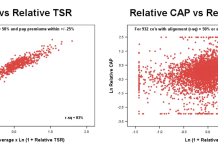Here, Fiscal Technologies offers insight and a unique solution to turn AP from reactive to proactive to defend against fraud and error
Over the past few years, there has been no shortage of stories about internal fraud or senior finance professionals being tried in court for finance fraud. As complexity builds across today’s multi-layered P2P environment, generating 100’s of different types of payment error and hiding fraud, how do authorities combat the risk of financial loss?
Ultimately, if AP teams can act on data and factual information, they can use insight, rather than reacting in hindsight, and are in a stronger position to battle the challenge of fraud and error.
To adopt a proactive strategy, finance leaders need a rethink. They need to go back to understanding how their risk factors have changed. Risk factors, such as those posed by the current climate, human error, process conflicts or poor controls and fraud. The legacy of reconciliation through an annual audit, generally results in the write-off of thousands of pounds, as many incorrectly believe these exceptions to be low risk or value.
Targeting Fraud
Analysis of over 3 trillion transactions, shows that the most common type is the phantom company fraud, where a user sets up a false supplier, processes fictitious orders and invoices, and pays for goods or services that are never received. This is surprisingly easy to perform for a user with a little too much access. But there are many other forms of deception, including supplier bank account changes, inventory manipulation and unauthorised changes to payroll data. Proper control measures can mitigate these vulnerabilities to a large extent.
The National Fraud Initiative (NFI) is an exercise which takes place once every two years. It matches electronic data within and between public and private-sector bodies to prevent and detect fraud. However, councils submit this data in October and will need to wait until February to get the results. It is proven that speed is the key factor in recovering the value of fraudulent payments and time reduces the success of any recovery activity.
Organisations can quickly analyse their NFI data for both fraud and error, using the insight from transaction data to inform process changes, identify system issues and streamline the P2P process.
FISCAL Technologies uses the data required for the NFI, to return – in days – detailed forensic analysis and priority of actions to stop payment errors immediately and uncover fraud quickly.
Reducing Finance Operating Costs
Taking a retrospective approach to managing overpayments and procurement fraud creates more cost, takes time away from more productive activities. Identifying duplicate payments, investigating causes, gathering evidence, and recovering lost funds is a lengthy process.
The key to combating procurement fraud and payment error is to take a proactive approach to AP operations, analysing 100% of supplier transactions, prior to payment.
Strengthening Controls
Without strong controls, the risk of financial loss is greatly increased. Continuous, preventative analysis and monitoring of 100% of payments – independently from the ERP system – delivers greater oversight and control.
Safeguarding Cash
Protecting and collecting cash is paramount right now. Many organisations create a P2P cash task force working against target KPIs. Most are extending payment terms, which is tough, but cash can be generated through a ‘Forensic Payables Analysis’, which provides a forensic analysis of all your payments and processes.
FISCAL’s NXG Forensics solution can be used to assess historical transactions to identify process errors, overpayments, potential fraud, and non-compliance. This highlights high risk suppliers, provides recommendations for improvements, and generates immediate cost savings.
Review and Update Financial Systems
The bigger projects that require a lot of hands on support and professional services have been put on hold, but finance teams still need to drive some process improvements. According to the analysts, the key criteria any financial service controllers should be looking at are; little time involved, remote training, strong ROI, strong security and finally, you need to run a proof of concept.
FISCAL Technologies enables businesses to reduce risk of loss due to errors across the P2P environment, identifying and recovering cash paid in error using the depth of intelligence from historical supplier transactions. Customers make informed business decisions and plans, using FISCAL software and services on an ongoing, preventative basis, enabling them to bounce back from this crisis. Using payables data from any ERP system, FISCAL’s customers apply an extensive range of AI powered tests and logic to identify payment errors and adverse payment trends daily – with exceptional accuracy and clarity, stopping cash leaving the business by mistake. They benefit from timely access to the information they need to drive efficiencies and save costs across the organisation.
Refined over 12 years of working with over 100 local councils, FISCAL’s unique solution delivers payables assurance across the P2P environment. Today’s challenges have never been greater. Organisations need to do all they can to retain cash in the bank, implement stronger controls and achieve oversight across all business risk.
Please note: This is a commercial profile











